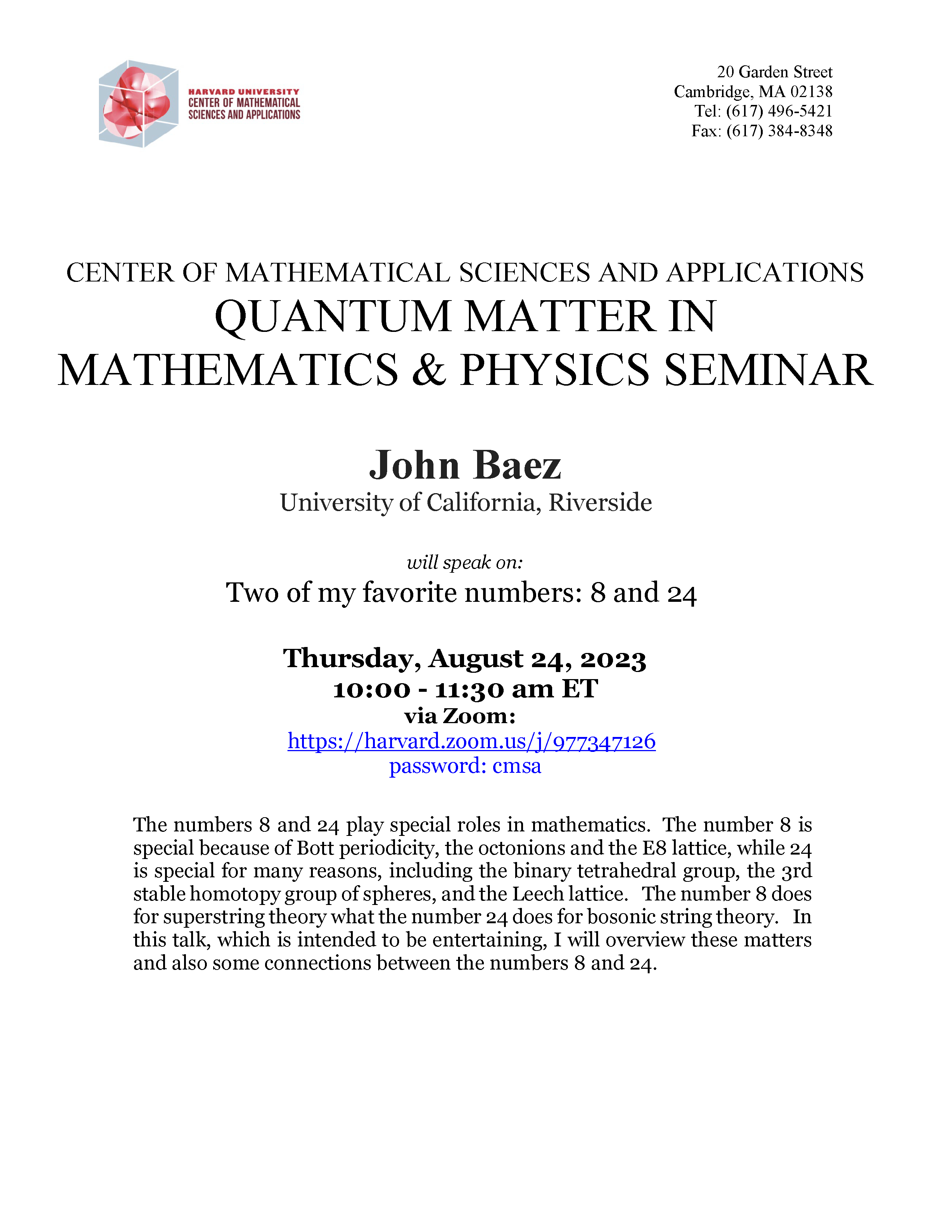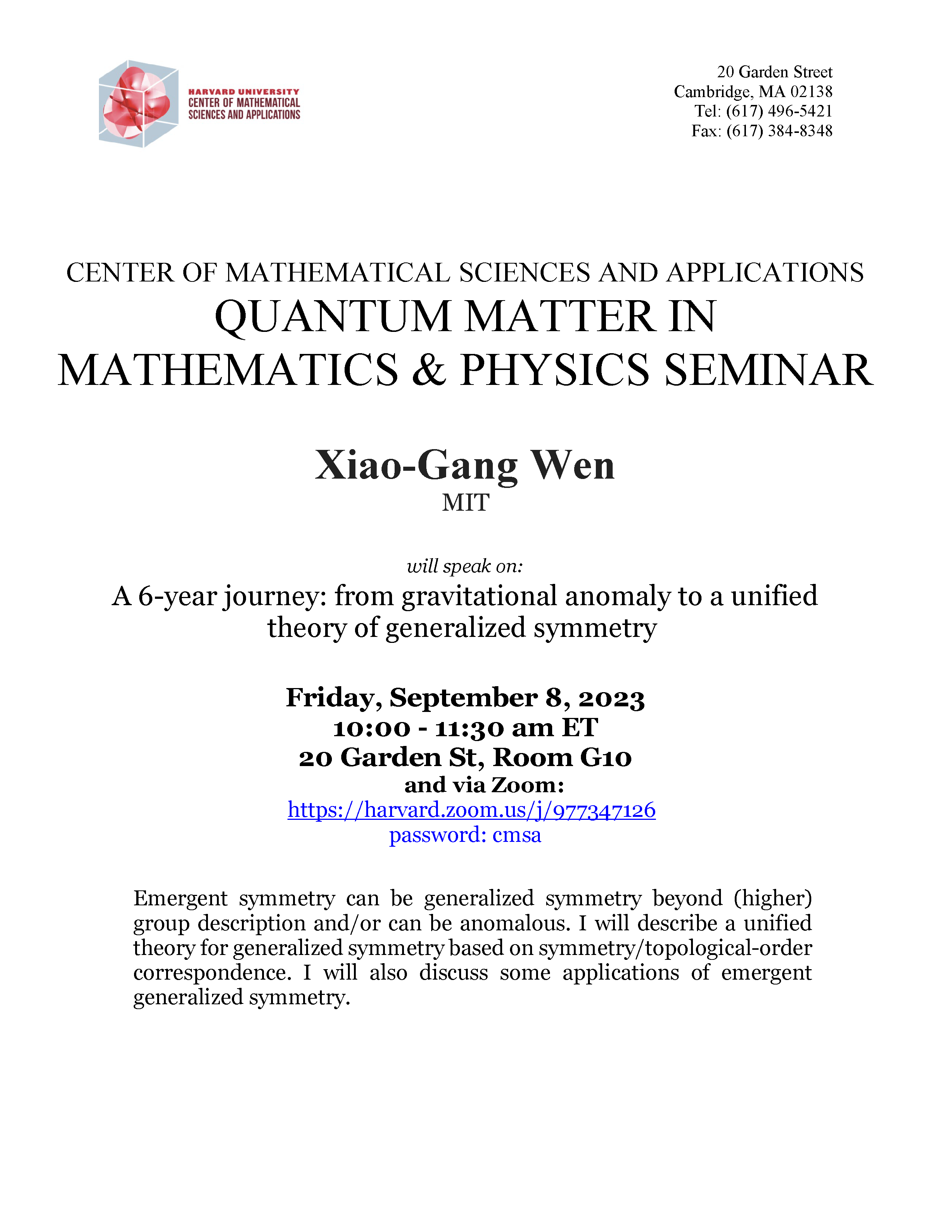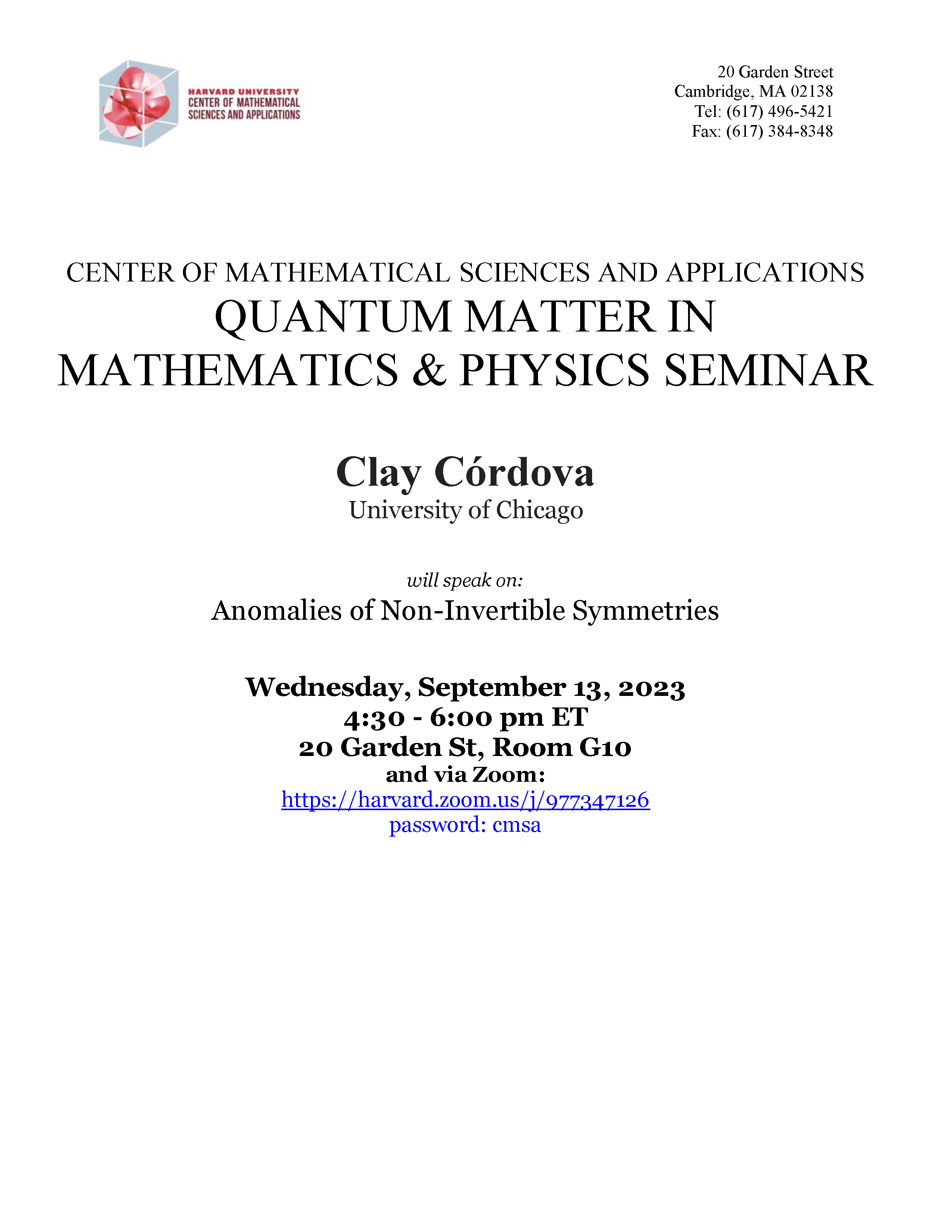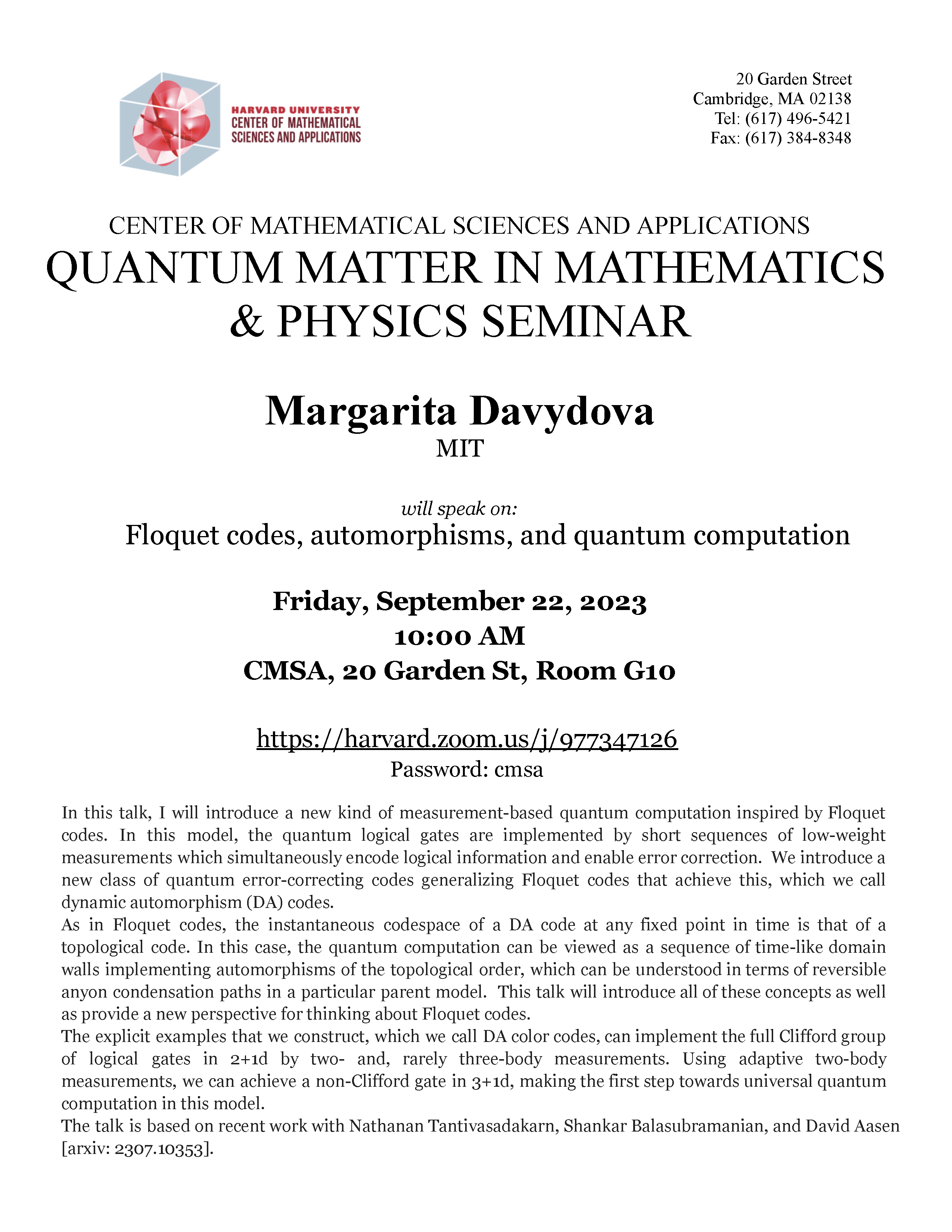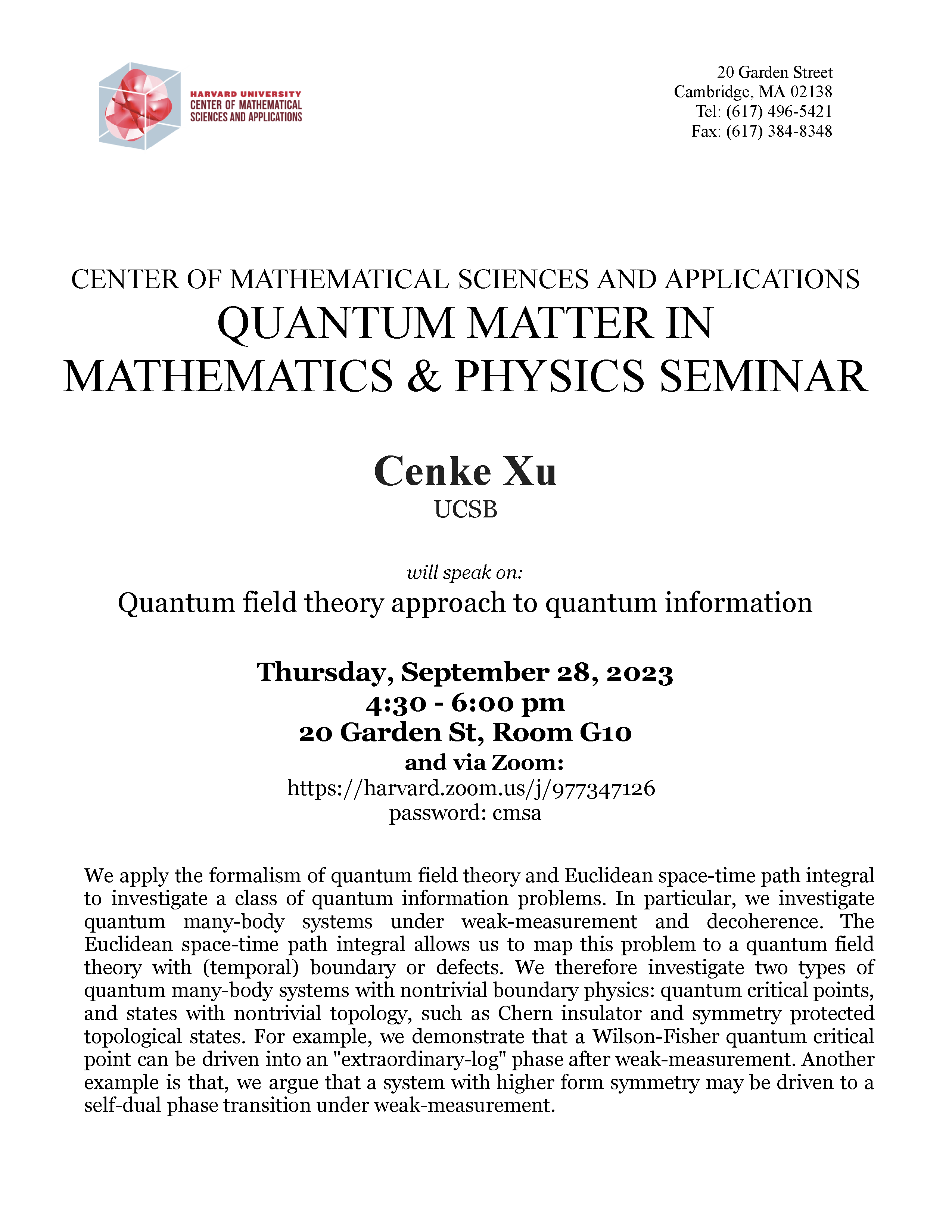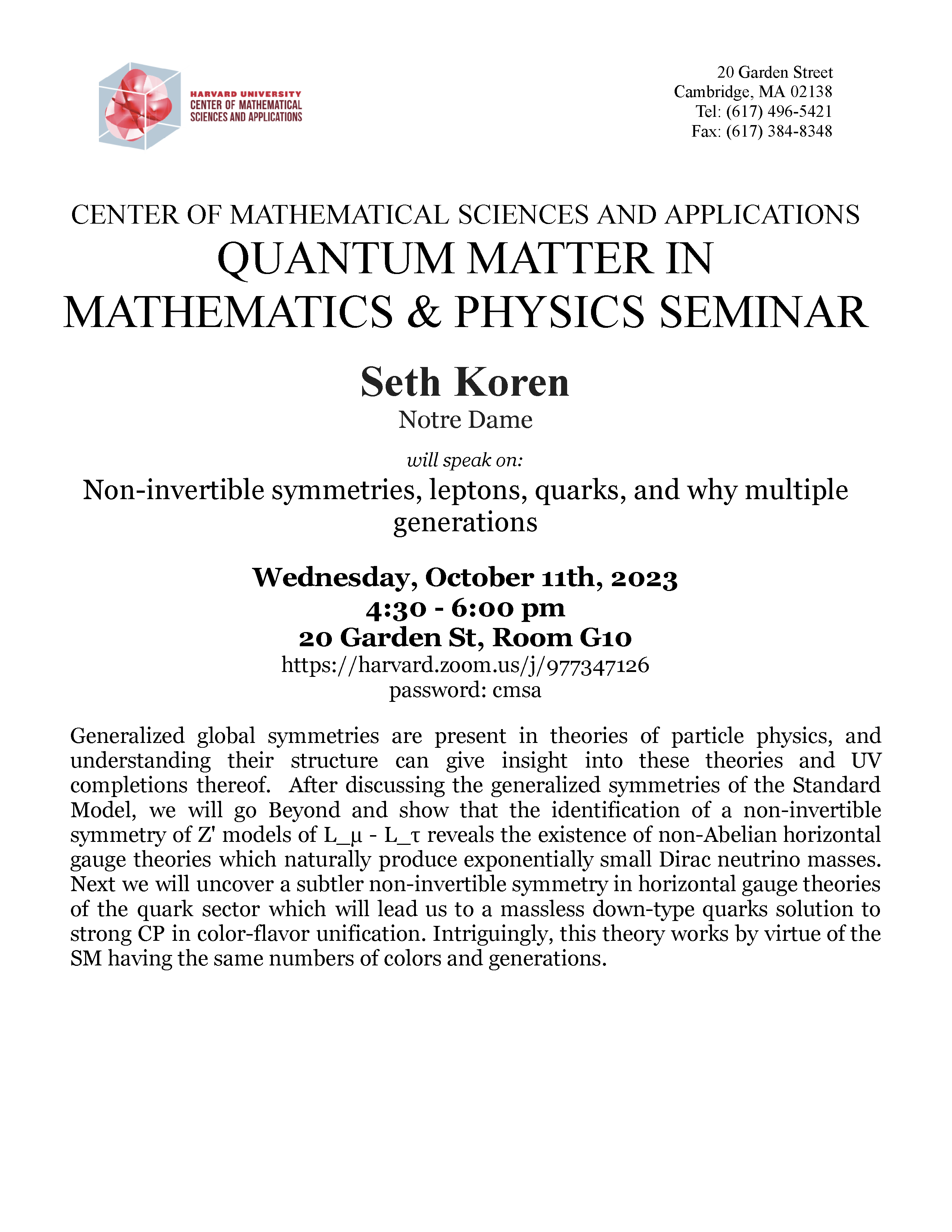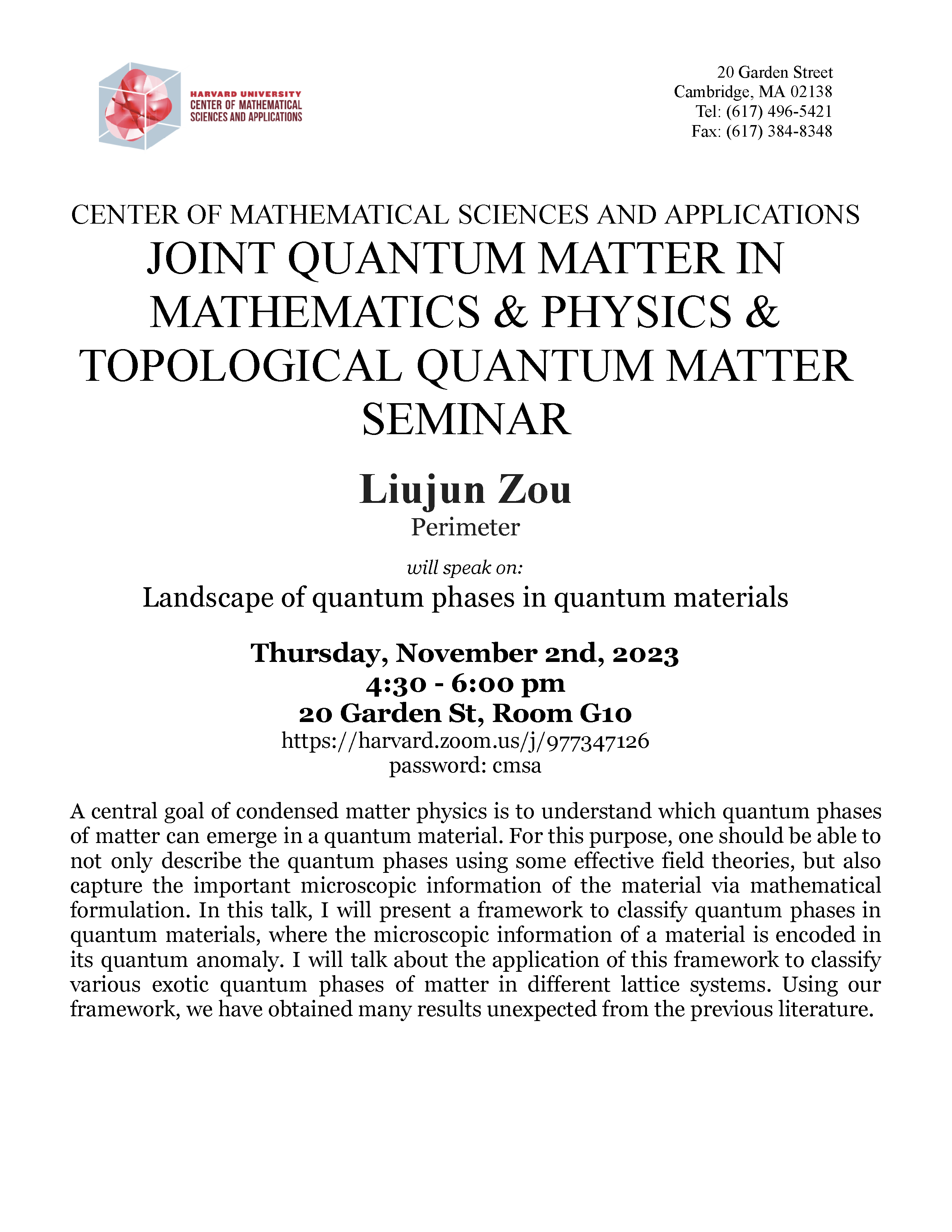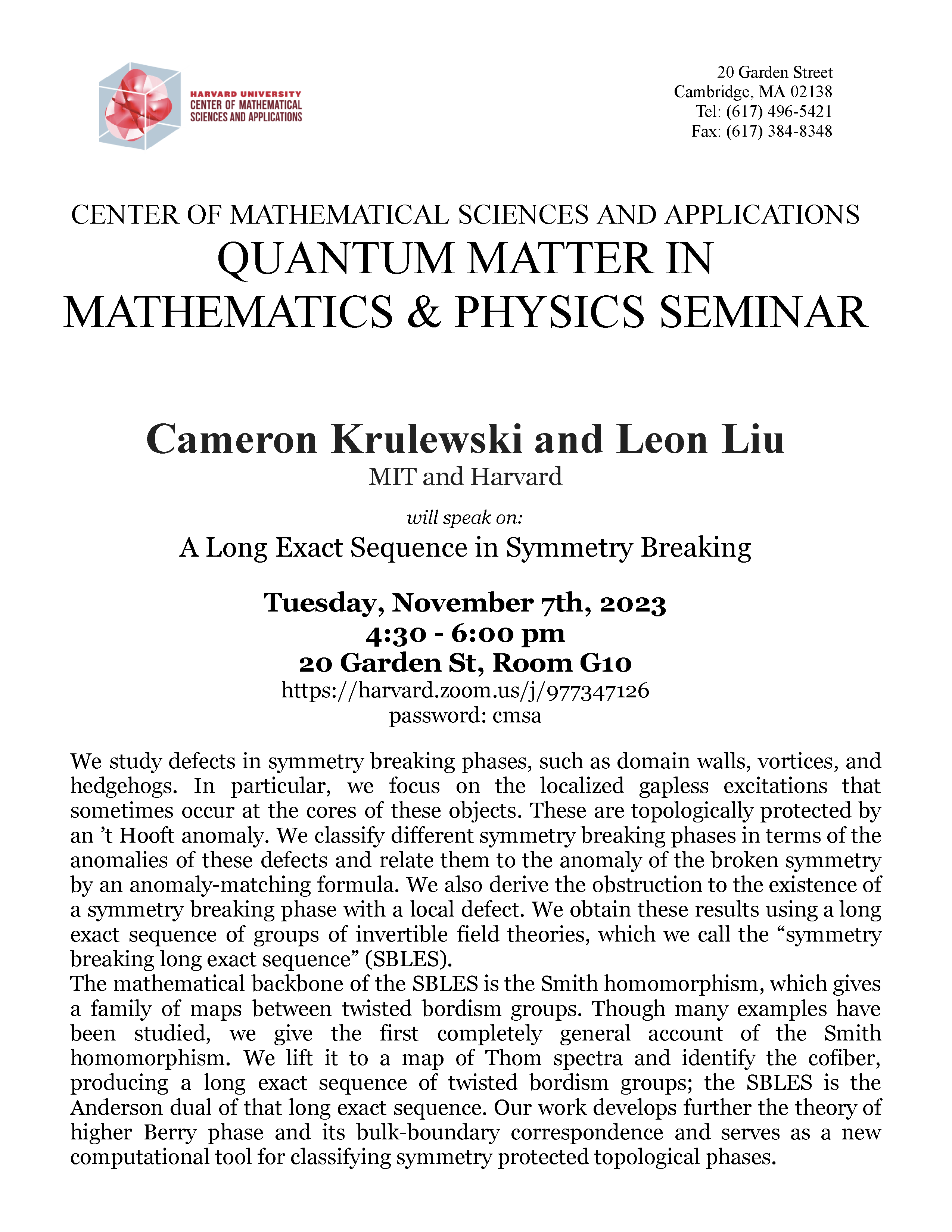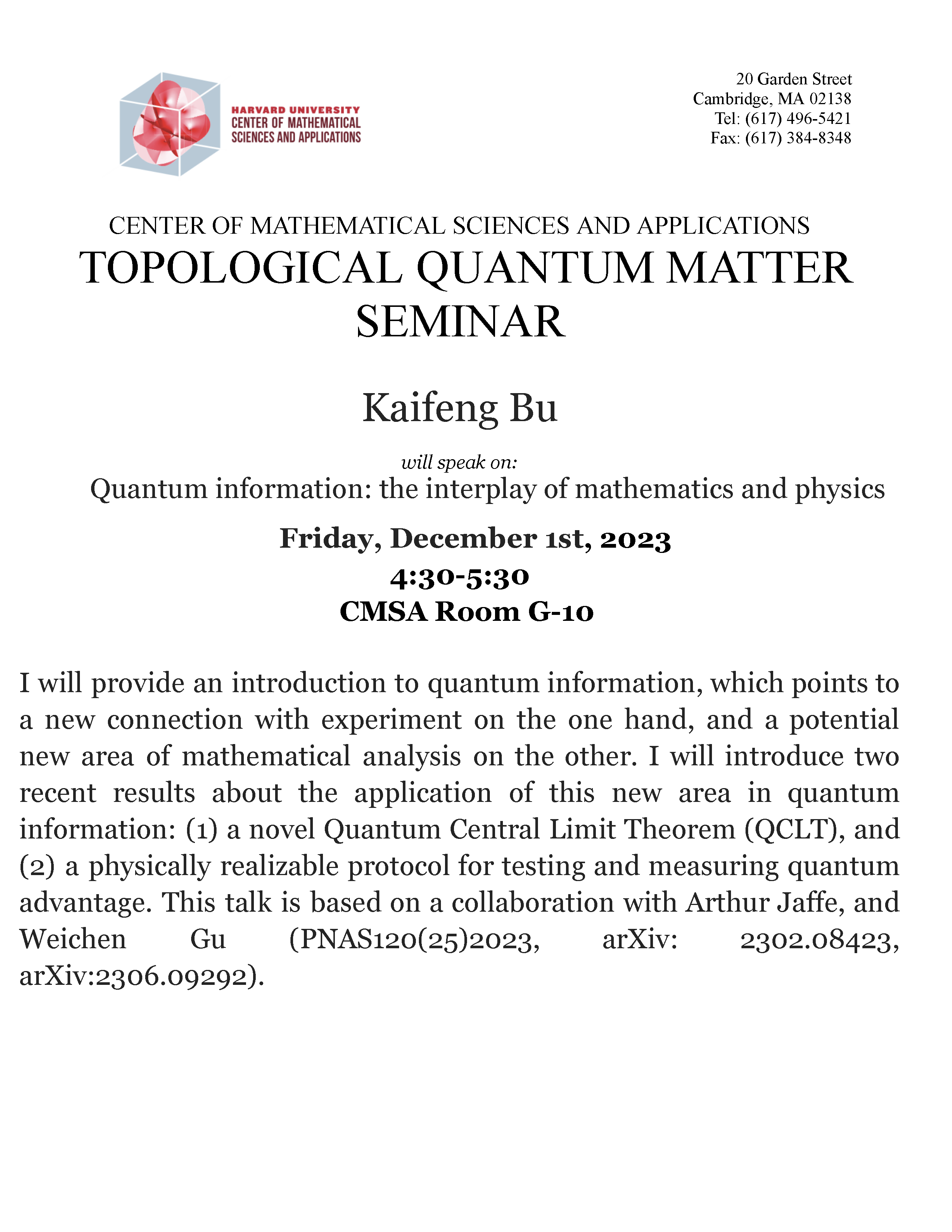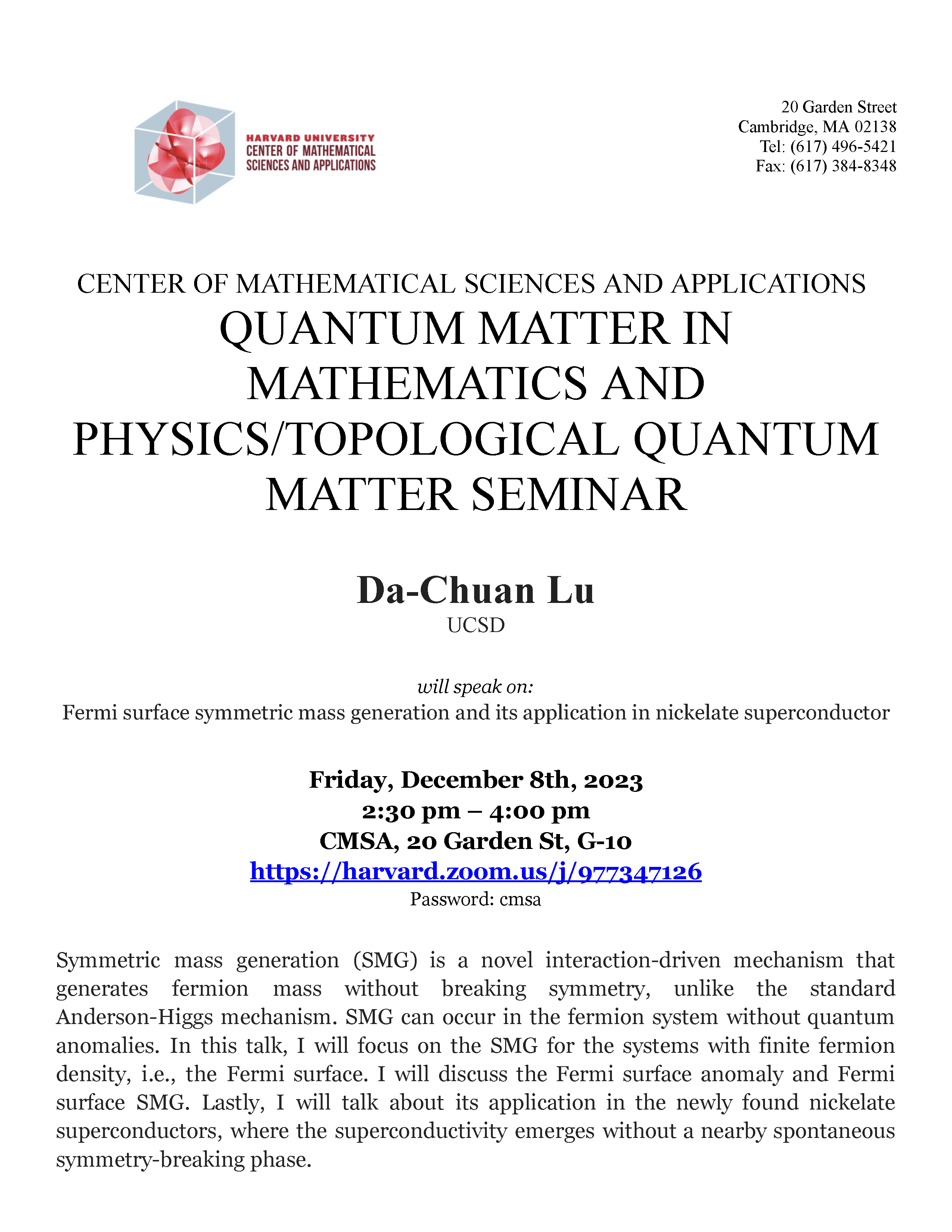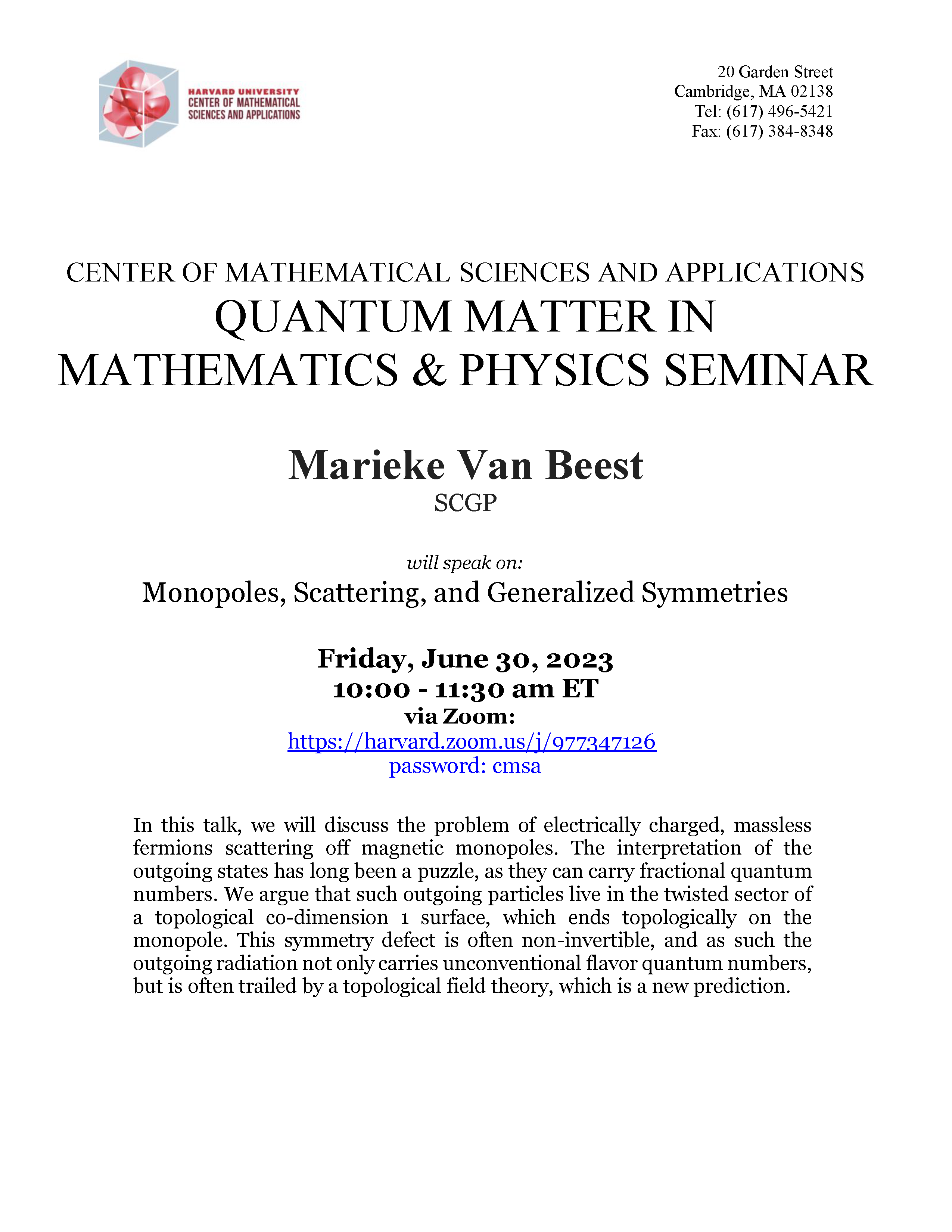
Monopoles, Scattering, and Generalized Symmetries
VirtualQuantum Matter Seminar Speaker: Marieke Van Beest (SCGP) Title: Monopoles, Scattering, and Generalized Symmetries Abstract: In this talk, we will discuss the problem of electrically charged, massless fermions scattering off magnetic monopoles. The interpretation of the outgoing states has long been a puzzle, as they can carry fractional quantum numbers. We argue that such outgoing […]

